There’s a lot of misinformation out there about what to expect from your oral health as you age. Let’s bust some common myths and set the record straight with the facts!
How Aging Affects Your Teeth


There’s a lot of misinformation out there about what to expect from your oral health as you age. Let’s bust some common myths and set the record straight with the facts!
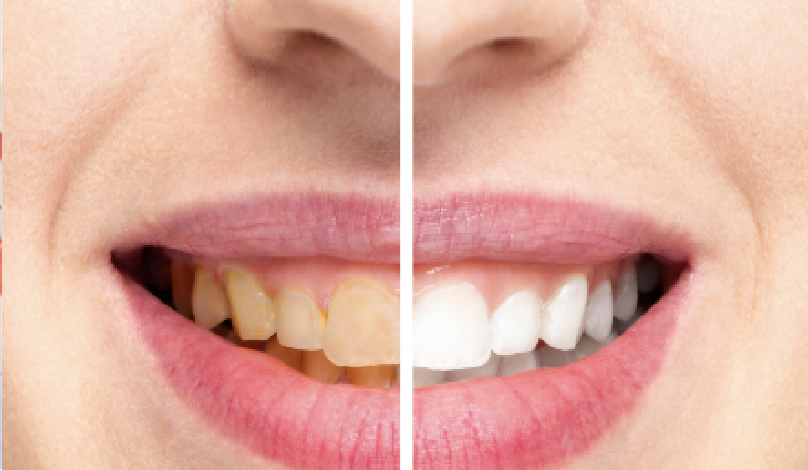
Coffee, Tea & Soda: How Your Favourite Drinks Affect Your Teeth Coffee, tea, and soda are popular go-to drinks for a boost of energy or a refreshing treat, but they can take a toll on your teeth. From causing staining to wearing down enamel, these beverages can impact your oral health in surprising ways. Here’s a closer look at how each drink affects your smile and some tips to help protect your teeth without giving up your favourites entirely. 1. How Coffee Affects Your Teeth Many people rely on coffee to start their day, but coffee is a known culprit for teeth staining. The dark pigments in coffee, called tannins, stick to the surface of your teeth and can lead to a yellowish hue over time. Additionally, coffee is acidic, which can weaken your enamel—the protective outer layer of your teeth. Tips to Protect Your Teeth: Drink Through a Straw: This helps keep coffee from coming into direct contact with your teeth. Rinse with Water Afterward: Swish some water around your mouth after finishing your coffee to wash away residue. Consider Adding Milk: Milk can reduce acidity, and it may also lessen the chance of staining by diluting coffee’s dark colour. 2. How Tea Affects Your Teeth While tea has antioxidants that benefit overall health, it can also cause staining. Black tea, in particular, contains a high amount of tannins, making it even more prone to stain teeth than coffee. Green tea and herbal teas are generally better choices but can still cause some discolouration over time. Tips to Protect Your Teeth: Opt for Lighter Teas: Green tea and herbal teas may be less staining than black tea. Add Lemon: Adding a splash of lemon juice can help reduce the tea’s staining effect, as the acid in lemon can help break down tannins. Rinse with Water: Just like with coffee, rinsing with water after drinking tea can help reduce staining effects. 3. How Soda Affects Your Teeth Soda, especially darker sodas like cola, is one of the worst offenders when it comes to tooth health. Not only does soda contain acids that wear down enamel, but it’s also full of sugar that feeds harmful bacteria in the mouth. This combination can lead to tooth decay, cavities, and enamel erosion, weakening your teeth over time. Tips to Protect Your Teeth: Limit Your Intake: Try to enjoy soda in moderation, as frequent consumption can lead to more damage. Switch to Sugar-Free Options: Sugar-free sodas still have acid but lack sugar, which can be somewhat less harmful. Use a Straw and Rinse with Water: Drinking soda through a straw and rinsing afterward can help reduce contact with your teeth and wash away the acids. General Tips for Minimizing Staining and Enamel Wear Brush at the Right Time: While it’s tempting to brush right after drinking these beverages, it’s actually best to wait about 30 minutes. The acids in coffee, tea, and soda temporarily soften your enamel, so brushing immediately afterward can wear it down further. Waiting gives your enamel a chance to re-harden. Consider Whitening Toothpaste: Whitening toothpastes can help keep surface stains at bay, though they won’t reverse deeper stains. Just be cautious, as some can be abrasive, which might cause further enamel erosion over time. Get Regular Cleanings: Professional cleanings can help remove surface stains that build up over time and will keep your teeth looking their best. Drink More Water: Water helps wash away the residue and acid from these beverages, and it’s generally the best thing you can drink for both your teeth and your body. While coffee, tea, and soda are loved by many, it’s essential to be mindful of how they impact your oral health. By taking a few small steps, you can enjoy these beverages while minimizing their effects on your teeth. So, enjoy that cup of coffee, tea, or soda responsibly—and keep smiling with confidence Blog Home
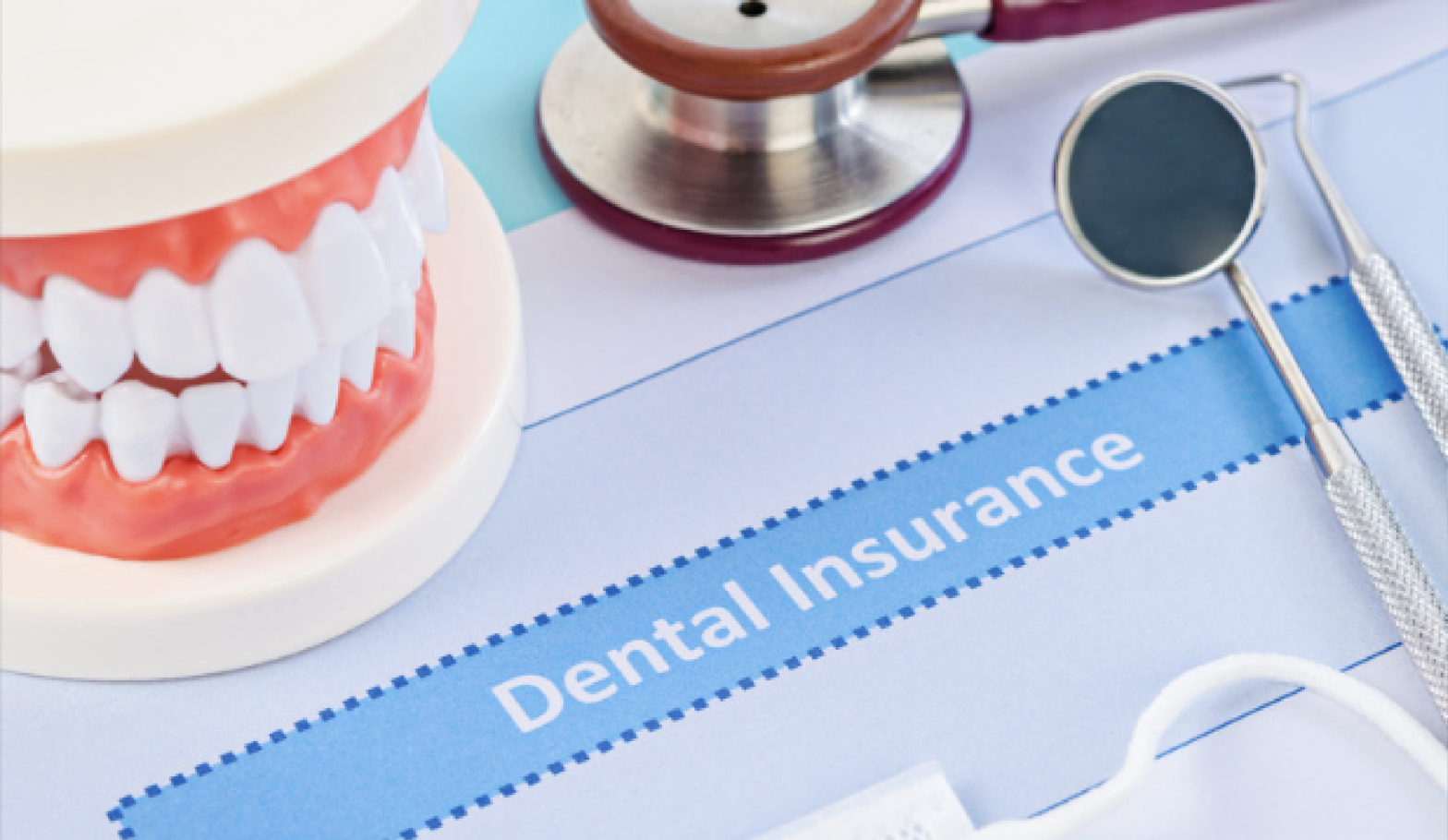
Unlocking Affordable Dental Care: The Canadian Dental Care Plan and How to Maximize Your Coverage Maintaining a healthy smile is essential, but dental care can be expensive. Fortunately, Canada’s new Dental Care Plan aims to make oral health accessible and affordable for Canadians. For eligible individuals, this plan can provide partial or full coverage for dental treatments. If you’re also enrolled in programs like Healthy Smiles Ontario (HSO) or the Ontario Disability Support Program (ODSP), you may even achieve 100% coverage for your dental needs. Let’s explore what the Canadian Dental Care Plan offers, how to apply, and how to maximize your benefits. What Is the Canadian Dental Care Plan? The Canadian Dental Care Plan is a federal initiative designed to provide financial assistance for dental services to low- and middle-income families who lack private insurance. Depending on your income and family size, this program can cover costs for: Routine check-ups and cleanings X-rays Fillings Extractions Other essential dental procedures The program aims to reduce barriers to oral health and prevent small issues from turning into costly problems. Who Is Eligible? You may qualify for the Dental Care Plan if you meet the following criteria: Your household income falls below a specific threshold (e.g., $90,000). You don’t have access to private dental insurance. You are a resident of Canada. Eligibility may vary by province, so it’s essential to check the specific details in your area. How to Apply for the Canadian Dental Care Plan Applying for the plan is straightforward: Check Your EligibilityVisit the official Canada Dental Benefit website to confirm if your income and family circumstances qualify you for the plan. Gather Required DocumentationYou’ll need your SIN, proof of income, and details about your household. Apply Online or By PhoneApplications can be submitted online through the Canada Revenue Agency (CRA) portal or by calling the CRA directly. Receive Your BenefitOnce approved, you’ll receive a benefit amount that you can use to pay for your dental services. Additional Coverage with Healthy Smiles Ontario or ODSP If you’re enrolled in Healthy Smiles Ontario (HSO) or the Ontario Disability Support Program (ODSP), you could receive additional dental benefits: Healthy Smiles Ontario: This program covers dental care for children 17 and under from low-income households. Services include regular check-ups, cleanings, fillings, and more. ODSP Dental Benefits: Adults receiving ODSP support can access a broad range of dental services. These programs work in tandem with the Canadian Dental Care Plan, ensuring that you have no out-of-pocket costs for your dental treatments. Steps to Achieve 100% Coverage Combine BenefitsIf eligible, use both the Canadian Dental Care Plan and provincial programs like HSO or ODSP. Ask Your DentistMany dental clinics can help you determine what’s covered under each program. Bring your benefit information to your appointment. Stay ProactiveRegular check-ups and cleanings prevent costly dental issues, ensuring your coverage is used efficiently. Your Path to a Healthier Smile The Canadian Dental Care Plan is a game-changer for individuals and families needing financial support for oral health. By combining federal benefits with programs like Healthy Smiles Ontario or ODSP, you can enjoy comprehensive coverage, freeing you from the financial stress of dental care. Ready to take the next step? Apply today and start smiling with confidence! Blog Home
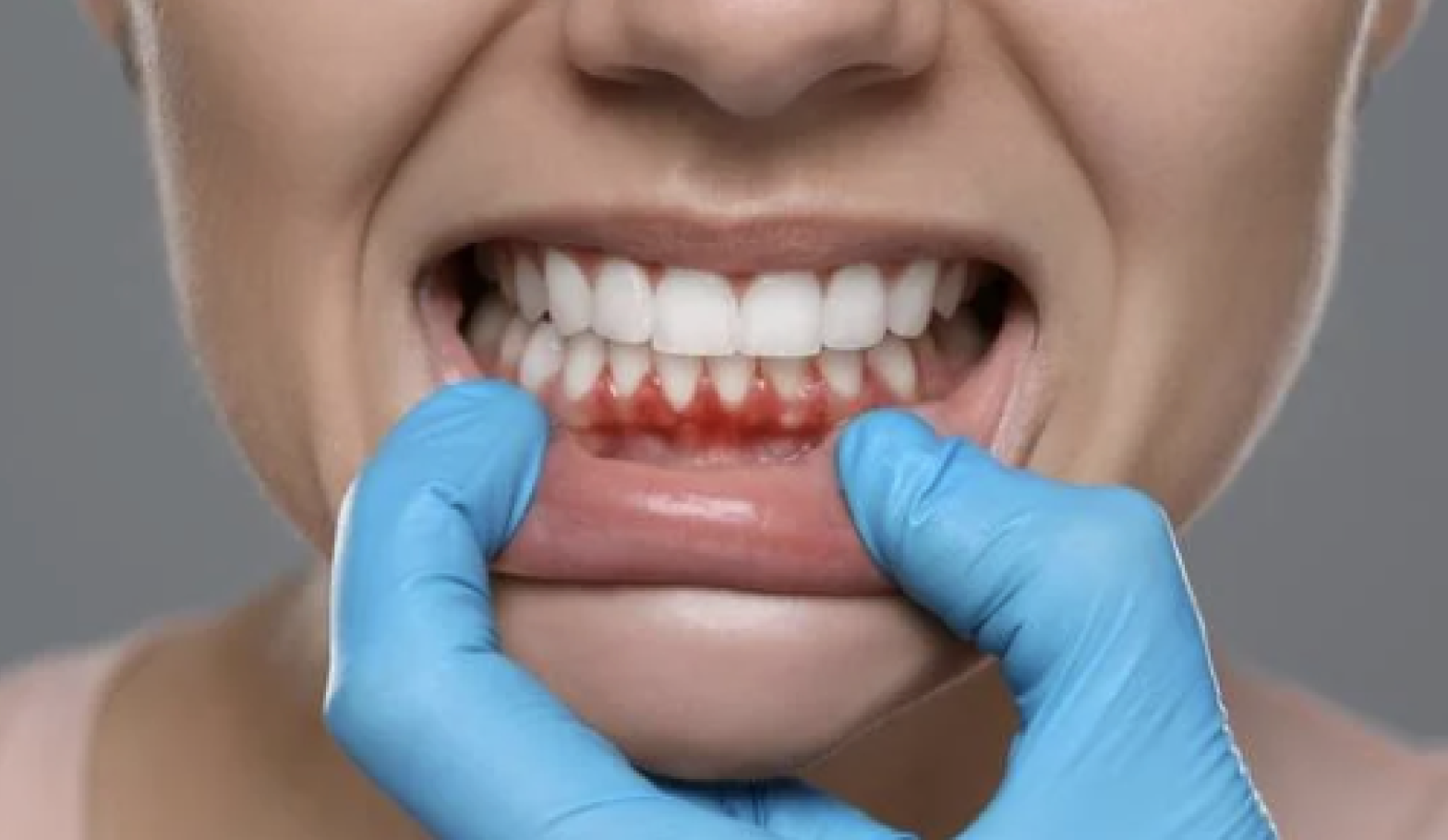
A Path to a Healthier Smile: The Importance of Preventative Dentistry and Regular Scaling Maintaining good oral health goes beyond brushing and flossing. Preventative dentistry, which includes regular dental check-ups and scaling, plays a crucial role in keeping your smile healthy and bright. In this blog post, we’ll explore the significance of preventative dentistry and why regular scaling is essential for your overall well-being. What is Preventative Dentistry? Preventative dentistry is all about taking proactive steps to prevent dental issues before they become serious problems. It includes routine dental visits, professional cleanings, fluoride treatments, dental sealants, and educating patients on proper oral hygiene practices. The goal is to maintain healthy teeth and gums, avoid cavities, gum disease, enamel wear, and more serious conditions that could lead to tooth loss or extensive dental work. The Role of Regular Scaling in Preventative Dentistry Regular scaling, also known as dental cleaning, is a fundamental component of preventative dentistry. During this procedure, a dental hygienist removes plaque and tartar (hardened plaque) that accumulates on the teeth and below the gum line. Even with diligent brushing and flossing, some plaque can remain in hard-to-reach areas, and if left untreated, it can lead to various dental problems. Benefits of Regular Scaling Prevents Gum Disease Plaque and tartar buildup are major contributors to gum disease (periodontal disease). If not removed, they can cause inflammation, bleeding, and infection in the gums, potentially leading to gum recession and tooth loss. Regular scaling helps to prevent the onset of gum disease by keeping your gums healthy and free from harmful bacteria. Protects Against Cavities Plaque contains bacteria that produce acids, which can erode tooth enamel and lead to cavities. Scaling removes this harmful plaque, reducing the risk of decay and preserving the strength of your teeth. Freshens Breath Bad breath (halitosis) is often caused by bacteria and food particles trapped in the mouth. Regular scaling eliminates these odour-causing elements, leaving your mouth feeling clean and your breath fresh. Brightens Your Smile Over time, plaque and tartar can cause teeth to appear yellow or stained. Scaling removes these deposits, revealing a brighter, whiter smile underneath. This can boost your confidence and make you feel great about your appearance. Reduces the Risk of More Serious Health Issues Poor oral health has been linked to various systemic health problems, including heart disease, diabetes, and respiratory issues. By maintaining a regular schedule of dental cleanings, you’re not only taking care of your teeth but also supporting your overall health. Saves Money in the Long Run Preventative care, like regular scaling, can save you from costly and extensive dental procedures in the future. By addressing issues early or preventing them altogether, you avoid the need for more invasive treatments such as root canals, extractions, or implants. How Often Should You Get a Dental Scaling? The frequency of dental cleanings can vary depending on individual needs. For most people, visiting the dentist every six months for a professional cleaning is sufficient. However, if you have a history of gum disease, are prone to cavities, or have other oral health concerns, your dentist may recommend more frequent visits. Preventative dentistry, with regular scaling at its core, is essential for maintaining a healthy and beautiful smile. It not only prevents dental problems but also contributes to your overall well-being. By staying on top of your oral hygiene and keeping up with your dental appointments, you’re investing in a lifetime of good health and confidence. Don’t wait until you have a problem—schedule your next dental check-up and scaling today. Your smile will thank you! Blog Home
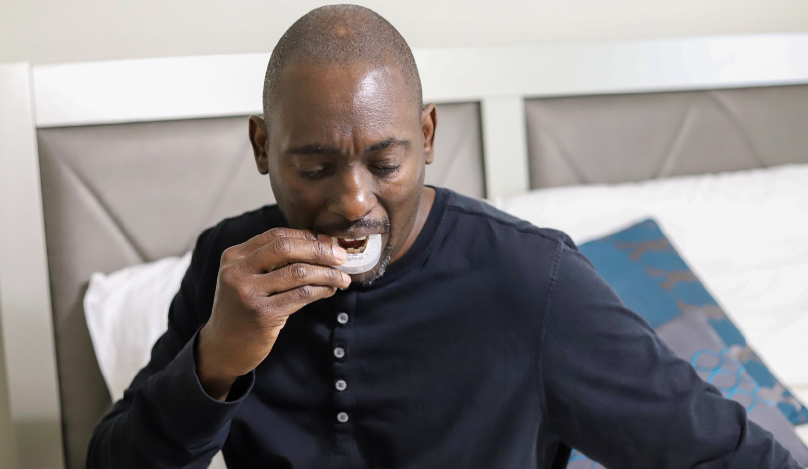
Protect Your Smile: When to Consider a Nightguard and Its Benefits Signs You Might Need a Nightguard Jaw Pain or Discomfort Frequent jaw pain, tightness, or clicking sounds could indicate that you’re grinding or clenching your teeth during sleep. Headaches Regular morning headaches can be a sign of nighttime teeth grinding. Tooth Damage If you notice chipped, cracked, or worn-down teeth, it could be due to bruxism. Tooth Sensitivity Increased sensitivity to hot, cold, or sweet foods and drinks might be caused by enamel wear from grinding. Ear Pain Unexplained ear pain or a feeling of fullness in the ears can sometimes be related to jaw clenching. Disturbed Sleep If you wake up frequently during the night or have restless sleep, bruxism might be the culprit. High Stress Levels Stress and anxiety are major contributors to teeth grinding. If you’re going through a particularly stressful period, a nightguard might be beneficial. Misaligned Bite An uneven bite or dental misalignment can cause excessive pressure on certain teeth, leading to grinding. Lifestyle Factors Habits such as smoking, excessive caffeine intake, and alcohol consumption can increase the likelihood of bruxism. Benefits of Using a Nightguard Soft Nightguards These are made from a soft, flexible material and are generally recommended for mild cases of bruxism. They offer comfort and are easy to get used to. Protects Your Teeth One of the primary benefits of a nightguard is protecting your teeth from damage. Grinding can wear down enamel, leading to cavities, fractures, and even tooth loss. A nightguard creates a barrier between your upper and lower teeth, preventing this damage. Reduces Jaw Pain and Tension By preventing teeth grinding and clenching, a nightguard can significantly reduce jaw pain and tension. This can also alleviate related symptoms such as headaches and ear pain. Improves Sleep Quality Wearing a nightguard can lead to better sleep quality by reducing the frequency of waking up due to discomfort or grinding noises. This can help you feel more rested and rejuvenated in the morning. Prevents Long-Term Dental Issues Continuous grinding can lead to long-term dental problems, such as temporomandibular joint (TMJ) disorders and significant tooth wear. Using a nightguard can prevent these issues from developing or worsening. Custom-Fit for Comfort Nightguards are typically custom-made to fit your mouth perfectly, ensuring comfort and effectiveness. Your dentist will take an impression of your teeth to create a nightguard that fits snugly and comfortably. Types of Nightguards Soft Nightguards These are made from a soft, flexible material and are generally recommended for mild cases of bruxism. They offer comfort and are easy to get used to. Hard Nightguards Made from a more rigid material, hard nightguards are suitable for severe cases of teeth grinding. They provide a durable solution for heavy grinders. Dual Laminate Nightguards These nightguards combine the best of both worlds with a soft interior for comfort and a hard exterior for durability. They are suitable for moderate to severe bruxism. A nightguard can be a game-changer for anyone suffering from bruxism, offering protection, pain relief, and improved sleep quality. If you’re experiencing any signs of teeth grinding or clenching, consider talking to your dentist about getting a custom nightguard. It’s a small investment that can have a big impact on your dental health and overall well-being. Blog Home
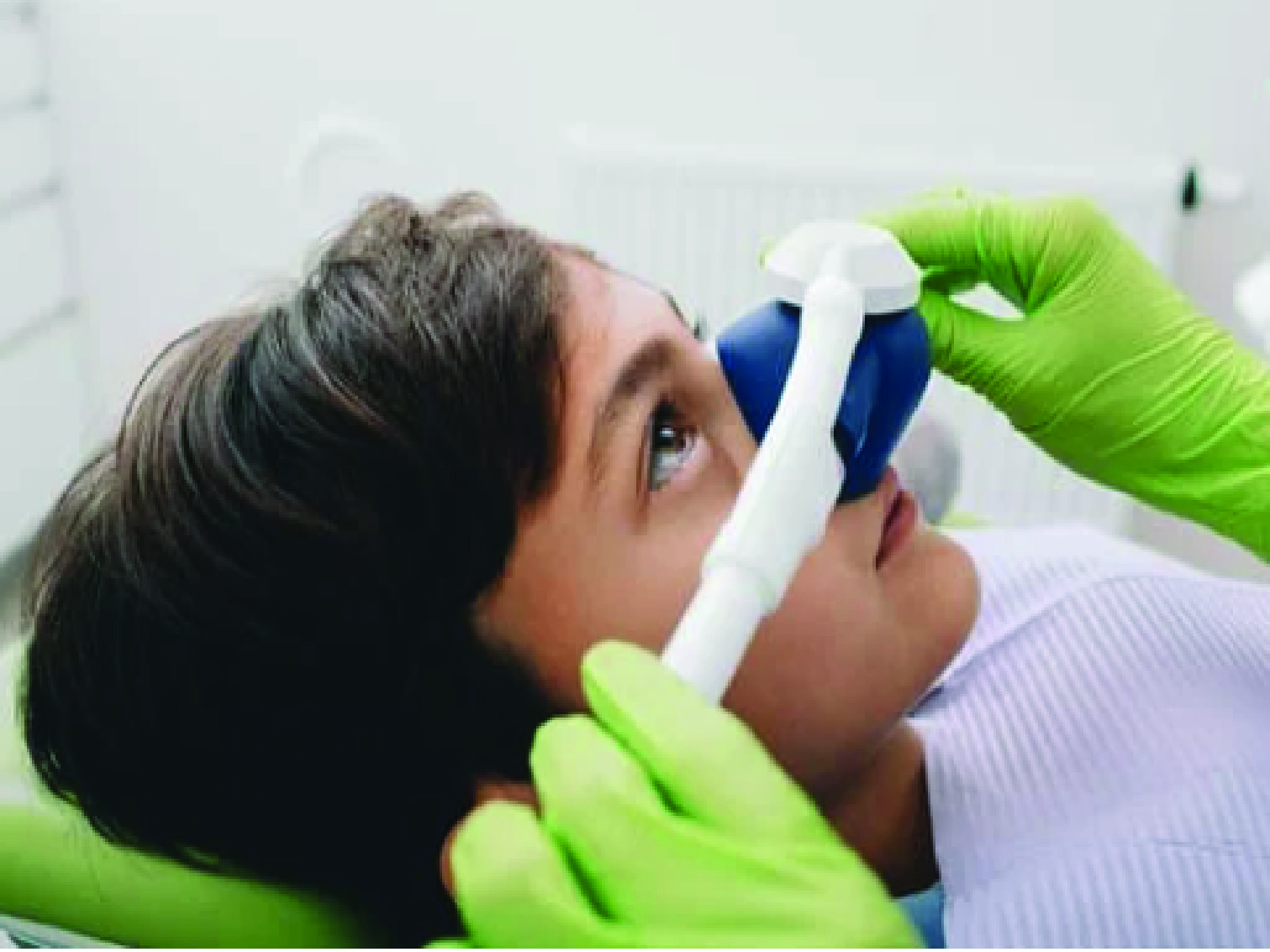
Embracing Sedation Dentistry: Enhancing Patient Comfort and Care As dental professionals, we understand that visiting the dentist can be a source of anxiety and apprehension for many patients. Whether it’s fear of pain, past traumatic experiences, or simply feeling uncomfortable in the dental chair, these emotions can prevent individuals from seeking the dental care they need. That’s where sedation dentistry comes in—a valuable tool in our arsenal for providing comfortable and stress-free dental experiences for our patients. The Role of Sedation Dentistry: Sedation dentistry involves the use of medications to help patients relax during dental procedures. It’s not just for those with severe dental phobia; it’s also beneficial for individuals with a low pain threshold, sensitive teeth, or those requiring extensive dental work in a single session. Benefits for Patients: Anxiety Reduction: Sedation dentistry helps alleviate anxiety and fear associated with dental visits. By inducing a state of relaxation, patients can undergo treatment with greater ease and comfort. Improved Pain Management: Sedatives used in sedation dentistry not only help patients relax but also reduce discomfort during and after dental procedures. This is particularly beneficial for individuals with a low pain tolerance or those undergoing invasive treatments. Enhanced Treatment Efficiency: With patients relaxed and cooperative, dentists can work more efficiently and effectively, leading to better treatment outcomes. This is particularly relevant for procedures that require precision and attention to detail. Memory Suppression: For patients who experience extreme dental anxiety, the sedation can induce partial or complete memory loss of the dental procedure. This can be a relief for those who dread the anticipation and recollection of dental visits. It’s natural for patients to have concerns about the safety of sedation dentistry. Rest assured, our team undergoes specialized training to administer sedatives safely and monitor patients throughout the procedure to ensure their well-being. Patient safety is always our top priority. Sedation dentistry offers a pathway to comfortable and stress-free dental care for patients who may otherwise avoid seeking treatment due to fear or anxiety. By providing a relaxed and calming environment, we aim to make every dental visit a positive experience for our patients. It’s natural for patients to have concerns about the safety of sedation dentistry. Rest assured, our team undergoes specialized training to administer sedatives safely and monitor patients throughout the procedure to ensure their well-being. Patient safety is always our top priority. Sedation dentistry offers a pathway to comfortable and stress-free dental care for patients who may otherwise avoid seeking treatment due to fear or anxiety. By providing a relaxed and calming environment, we aim to make every dental visit a positive experience for our patients. If you’re someone who struggles with dental anxiety or discomfort, we encourage you to explore the benefits of sedation dentistry. Don’t let fear stand in the way of your oral health and overall well-being. Schedule a consultation with us today and discover how sedation dentistry can transform your dental experience for the better. Your comfort and satisfaction are our utmost priorities. Together, let’s work towards achieving a healthier smile—one stress-free visit at a time. Blog Home
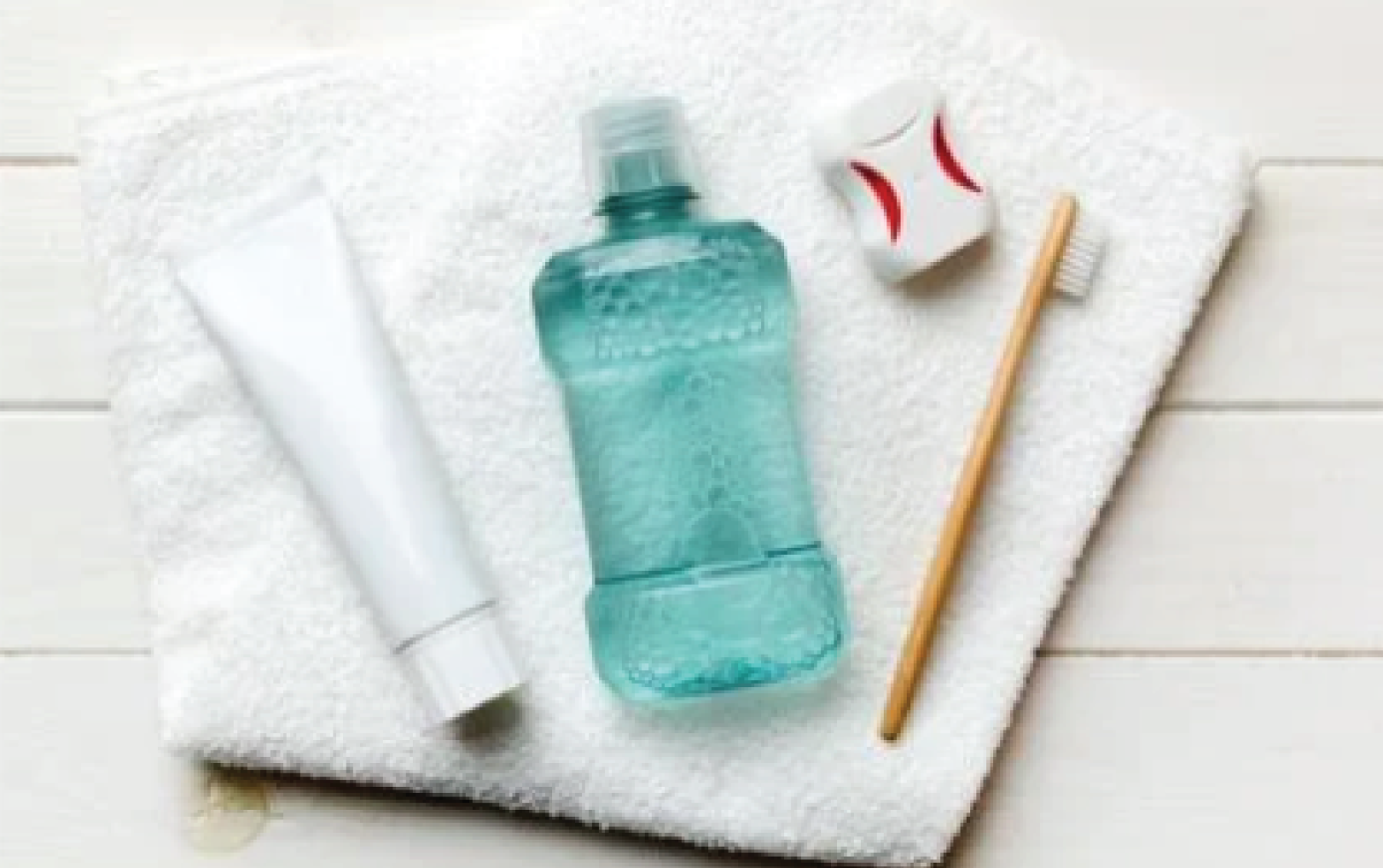
Keep Your Smile ShiningThrough College Adventures College life is a wild ride, full of exciting moments, brainy challenges, and loads of personal growth. But, in the midst of all the chaos, don’t forget about something super important – your dental health! The college scene, with its crazy schedules, stress levels through the roof, and newfound freedom, can be a bit tricky for keeping that grin in top shape. Fear not! This awesome guide is here to walk you through the dental needs of college peeps and sprinkle in some practical tips to keep your pearly whites on point while you rock the college scene. Juggling Crazy Schedules and Snacky Habits: College means crazy schedules, late-night cramming sessions, and meals on the run. All of this can wreak havoc on your teeth, leading to more cavities and gum issues than you’d like. Solution? Get into the groove of a solid oral hygiene routine – brushing, flossing, and a swish of mouthwash. And hey, grab some portable dental gear for those moments when you’re jet-setting across campus. Munchies and Mouth Love: The college dining hall is like a candy wonderland, but be mindful of your oral health amidst the sweet temptations. Suggest to your buds some tooth-friendly snacks like fruits, veggies, and cheese. And don’t forget to hydrate with water – it’s like a superhero for flushing out the bad stuff and keeping that saliva game strong. Stress Busters for a Happier Mouth: College stress is real, and it can mess with your teeth, causing things like grinding and clenching. Your teeth might not thank you for it! Combat stress with killer moves like exercise, mindfulness, and getting some quality shut-eye. Your mental health will thank you, and so will your smile. Crack the Code on Dental Insurance: Understanding dental insurance might feel like decoding a secret message, but it’s crucial. Check out what your university offers in student health plans, especially ones with dental coverage. Take advantage of those campus resources for regular check-ups – it’s like a VIP pass to preventing dental dramas. Emergency Dental Drama: Life happens, accidents occur, and suddenly, you’re in need of emergency dental care. Know your local dental superheroes near campus, keep their digits close, and be ready to call if your teeth ever throw a surprise party. Being prepared can save you time and keep dental drama to a minimum. As you dive into your academic adventures, don’t forget about your smile! Make good dental health a priority by adopting awesome habits, being aware of potential challenges, and tapping into the resources around you. A dazzling smile doesn’t just add to your overall awesomeness; it boosts confidence, making your college journey even more incredible. So, let’s flash those pearly whites – one brush at a time! 😁 Blog Home

Caring for Children’s Teeth Getting your little ones to brush their teeth can be a real challenge, but trust me, it’s worth it in the long run. Ignoring proper oral hygiene for kids can have serious consequences for their dental health down the road. The habits we instill in our kids now will stick with them into adulthood, and that’s a responsibility we, as parents, shouldn’t take lightly. So, let’s make dental care a family affair! You know how kids are like sponges, absorbing everything around them? Well, that includes your oral hygiene habits. Show them the ropes by turning tooth brushing into a fun family game. Morning and night routines become much more exciting when they involve the whole gang. Now, let’s dive into some fantastic tips for keeping those little pearly whites in top-notch shape! Why Oral Hygiene Is Crucial for Kids Let’s start from the beginning – as soon as your little one makes their grand entrance into the world, it’s time to start caring for those gums. Even before the teeth make their debut, grab a soft cloth and gently wipe away any gunk after feeding. We’re laying the foundation for a lifetime of excellent oral health right from day one. Teaching the Kiddos the Ropes As your tiny humans grow, it’s crucial to teach them the ABCs of dental care – brushing, flossing, and using mouthwash. I get it; convincing kids to brush can be a mission. But sit them down, have a heart-to-heart about the importance of a healthy mouth, and watch them embrace the responsibility. It’s like planting the seeds of responsibility and accountability early on. Caring for Those Baby Teeth Between 1 and 2 years old, your little one will be flaunting a full set of baby teeth. Break out the soft-bristled toothbrush and give those teeth a gentle scrub with water twice a day. If your dentist gives the green light, throw in a dab of fluoridated toothpaste the size of a grain of rice. Guiding the Brushing Hand At 2-4 years, start guiding those little hands as they brush. Make it a two-minute affair, with special attention to the back molars – the ninja hideout for food particles. As the parent ninja, you’re still in charge of flossing, but hey, they’re getting there. Formative Years: 4-7 Now, these are the years where your mini-me is shaping up their oral hygiene skills. Keep an eye on their technique, introduce the concept of flossing around 4 or 5, and let them take the reins more often. Flossing might be a tricky skill, so be their trusty sidekick until they’re ready to go solo. Independent Brushing and Flossing: 8 and Beyond By 8 years old, your little champion should be brushing and flossing like a pro. Keep the motivation alive by making it a family affair – show them that adults and older siblings are still rocking the oral hygiene game. It’s all about setting a good example. Make Dental Care a Fun Adventure Kids can be squirmy and restless, especially when it comes to teeth talk. Turn the brushing routine into a game – who can brush the longest or come up with the goofiest tooth-brushing dance? The key is to make it something they actually look forward to. Promote Healthy Habits Let’s keep it real with the kiddos. Discourage thumb-sucking (it messes with those pearly whites), limit pacifier use, and establish a solid morning and bedtime routine that includes brushing and flossing. Consistency is the name of the game. Correct Techniques for Brushing and Flossing Remember the old circular motion advice? Scratch that. Now it’s all about light back-and-forth strokes to keep those gums happy. When it comes to flossing, wrap it around your fingers, guide it gently between those teeth, and dance it up and down along the gum line. Sugar: The Not-So-Sweet Truth Sugar is the arch-enemy of teeth, especially for the little ones. Limit their sugar intake early on, and you’ll be setting them up for a lifetime of stellar oral health. Too many sugary snacks can lead to cavities, and nobody wants that. In a nutshell, let’s make dental care a family adventure full of laughter, games, and responsibility. Your little ones are watching, so lead by example and show them that taking care of their smiles is as important as the adventures they embark on every day! Blog Home

Embracing Change A Comprehensive Guide to Dentures Smiling confidently, enjoying a hearty meal, and speaking clearly – these are daily activities many of us take for granted. However, for those who have experienced tooth loss, these simple pleasures may become a challenge. Dentures, a time-tested solution, offer a way to restore not only the functionality of a natural smile but also the confidence that comes with it. Understanding Dentures Dentures, also known as false teeth, are prosthetic devices designed to replace missing teeth. They come in various forms, offering solutions for partial or complete tooth loss. Understanding the types of dentures available is crucial for making informed decisions about dental care. Complete Dentures: Designed for those who have lost all of their teeth in either the upper or lower jaw. Partial Dentures: Ideal for individuals with some natural teeth remaining, these dentures fill in the gaps, restoring functionality and aesthetics. Overdentures: Secured over existing teeth or dental implants, providing increased stability. The Denture Fitting Process The journey towards dentures begins with a thorough consultation and evaluation by a dentist. This process involves examining the oral health, discussing the patient’s preferences, and creating a personalized treatment plan. Accurate impressions are crucial for well-fitted dentures. Dentists take precise measurements of the oral cavity, ensuring the prosthetic device fits comfortably and securely. Adapting to Dentures Wearing dentures for the first time might feel unusual. Patience and persistence are key during the initial adjustment period. Speech, eating habits, and oral hygiene routines may need some adaptation. Maintaining good oral hygiene remains essential even with dentures. Regular cleaning, removing and cleaning the dentures, and caring for the gums help prevent complications and ensure longevity. Overcoming Challenges Adapting to dentures can impact speech initially. Practicing speaking and enunciating certain words helps overcome speech challenges. Initially, a softer diet might be recommended to ease the transition. As confidence grows, reintroducing a variety of foods is encouraged. Long-Term Care & Maintenance Routine dental check-ups are essential for monitoring the fit and condition of dentures. Adjustments or replacements may be necessary over time. Maintaining denture hygiene is crucial to prevent issues like bad breath and infections. Regular cleaning and proper storage are essential aspects of denture care. Dentures, while initially an adjustment, provide individuals with a renewed sense of confidence and functionality. Understanding the types of dentures, the fitting process, and adopting proper care practices are key to a successful denture experience. As with any significant change, patience and a positive attitude go a long way in embracing and adapting to the new normal of a life with dentures. Ultimately, dentures can be a gateway to a vibrant and fulfilling oral health journey. Blog Home

Cosmetic Dentistry A radiant smile can be a powerful asset, boosting confidence and leaving a lasting impression. In the world of dentistry, cosmetic dentistry has emerged as a transformative field, offering innovative procedures that go beyond oral health to enhance the aesthetic appeal of your smile. Let’s dive into the art and science of cosmetic dentistry, exploring the various procedures that can help you achieve the smile you’ve always dreamed of. 1. Teeth Whitening: Illuminating Your Smile One of the most popular and accessible cosmetic dentistry procedures is teeth whitening. As time passes, our teeth may develop stains attributed to factors like aging, dietary choices, and lifestyle habits. Professional teeth whitening treatments are designed to remove stubborn stains, leaving your teeth several shades brighter. 2. Porcelain Veneers: Crafting Perfection If you’re aiming for a more extensive smile makeover, porcelain veneers present a versatile solution. These thin, custom-made shells are bonded to the front surface of teeth, addressing issues like discoloration, misalignment, or gaps. Veneers not only improve the appearance of teeth but also provide durability and resistance to staining, making them a long-lasting cosmetic enhancement. 3. Dental Implants: Restoring Confidence and Functionality Missing teeth can have a significant impact on both appearance and oral function. Dental implants are a revolutionary solution, replacing missing teeth with artificial ones that look and function like natural teeth. Not only do implants elevate your smile, but they also promote oral health by preventing bone loss and maintaining the structure of your jaw. 4. Clearcorrect: Straightening Smiles Discreetly If the idea of traditional braces gives you pause due to misaligned teeth, Clearcorrect steps in as a discreet and comfortable alternative. These transparent aligners work gradually, coaxing your teeth into the desired alignment with nearly invisible precision. Clearcorrect doesn’t just enhance the aesthetics of your smile; it also plays a role in overall oral health by diminishing the risk of problems linked to misaligned teeth. Cosmetic dentistry is a dynamic and evolving field that combines artistry and science to enhance smiles and improve confidence. Whether you’re looking to brighten your teeth, correct imperfections, or replace missing teeth, there’s a cosmetic dentistry solution tailored to meet your unique needs. Consult with a qualified cosmetic dentist to explore the possibilities and embark on a journey towards a more confident and radiant smile. After all, your smile is a work of art—let cosmetic dentistry help you showcase it to the world. Blog Home